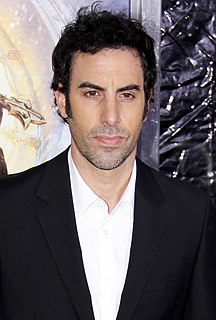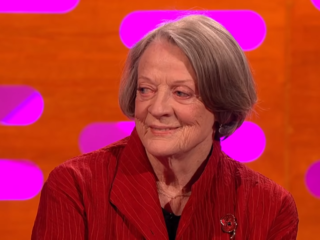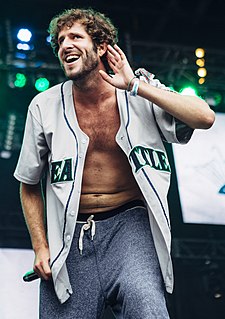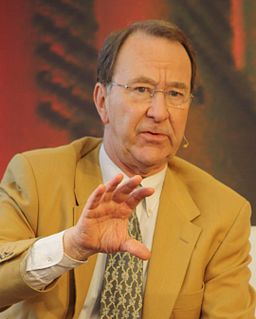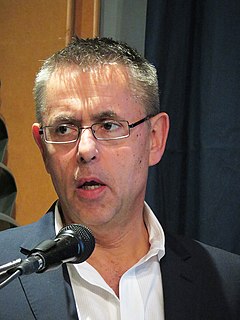A Quote by Sacha Baron Cohen
I remember, when I was in university I studied history, and there was this one major historian of the Third Reich, Ian Kershaw. And his quote was, 'The path to Auschwitz was paved with indifference.' I know it's not very funny being a comedian talking about the Holocaust, but I think it's an interesting idea that not everyone in Germany had to be a raving anti-Semite. They just had to be apathetic.
Related Quotes
I had no idea that that was around in the family anywhere. Maybe it never was. But - so they broke the way for me, if you know what I mean. I have no idea where I got the idea from to do what I do. But I think they - Ian and Alistair, my brothers kind of opened a lot of doors for me onto the world - you know, made it seem to be a very, very interesting place.
Had the Holocaust happened in Tahiti or the Congo, as it has; had it happened in South America, as it has; had it happened in the West Indies, as it has - you must remember that within fifty years of Columbus's arrival, only the bones remained of the people called the Arawaks, with one or two of them in Spain as specimens. Had the Holocaust committed under the Nazis happened somewhere else, we wouldn't be talking about it the way we talk about it.
I always wanted to be a comedian, even when I was a little kid. I had a funny father who was in the news business, by the way. He was a radio news guy. So the news was always in my house, and funny was always in my house. It was sort of just baked into the DNA that I would do this for a living, but I can remember being less than 10 years old and dreaming about being a comedian.
It was really hard coming to terms with the Nazi history. Then in my twenties I was traveling to Germany. There was a lot of poetry activity and some of my first readings abroad and trying to relate with people my own age there and what they were discovering and learning had to examine in terms of their backgrounds. Then so many of my friends had family who had either perished in the holocaust or survived in the holocaust. It was very palpable.
The integration in Germany was made easier by the fact that I am probably of the third generation. So I have undergone a process of assimilation, of Jews into German society.I lived as a child in Germany, the feeling of being surrounded by people of whom the majority had very strong anti-Semitic sentiments. But there was one very odd thing in the whole milieu in which I lived: no one accepted the stigmatization. It is quite difficult. No one, my father for instance, would ever take it seriously. He would regard anti-Semites as people of no education.
There's an interesting book about that called The Third Reich and the Ivory Tower, written by Stephen H. Norwood. It has a long discussion about Harvard, and indeed the school's president, James Conant, did block Jewish faculty. He was the one who prevented European Jews from being admitted to the chemistry department - his field - and also had pretty good relations with the Nazis.
We always see the Holocaust in terms of black-and-white images, barking Germans, cowering Jews. We know very well-known fixed places like Auschwitz, Birkenau, Treblinka, and Beltzec. Instead, war can live in a couple having a spat, when we say, "That was a real war." We very rarely have the Holocaust live in the terms of today. And I think that's a problem, because it becomes ancient history.
I left Starbucks in 2015. When I was younger, I remember looking at Justin Bieber and wishing I had all these fans, but you know what? Everyone has their path, everyone's path is different, and this is where mine's going. I just didn't want to work at Starbucks. I wanted to be writing music all the time.
I'm surprised by how much I remember [on childhood on film]. I think it's just because I had these interesting moments. Of course, you never know when they're interesting moments, but there was a lot of stuff that I remember and have attached significance to later. I remember enough. I remember highlights.
I remember working with Jackie Chan on Shanghai Noon [2000], and when we were working on the script, I thought that my character thought about being an outlaw the way a kid today would think about being a rock star, as a way to impress girls. So it was just kind of a funny idea, but once we had that idea, it changed the character and made it something that was funnier to me to play.
